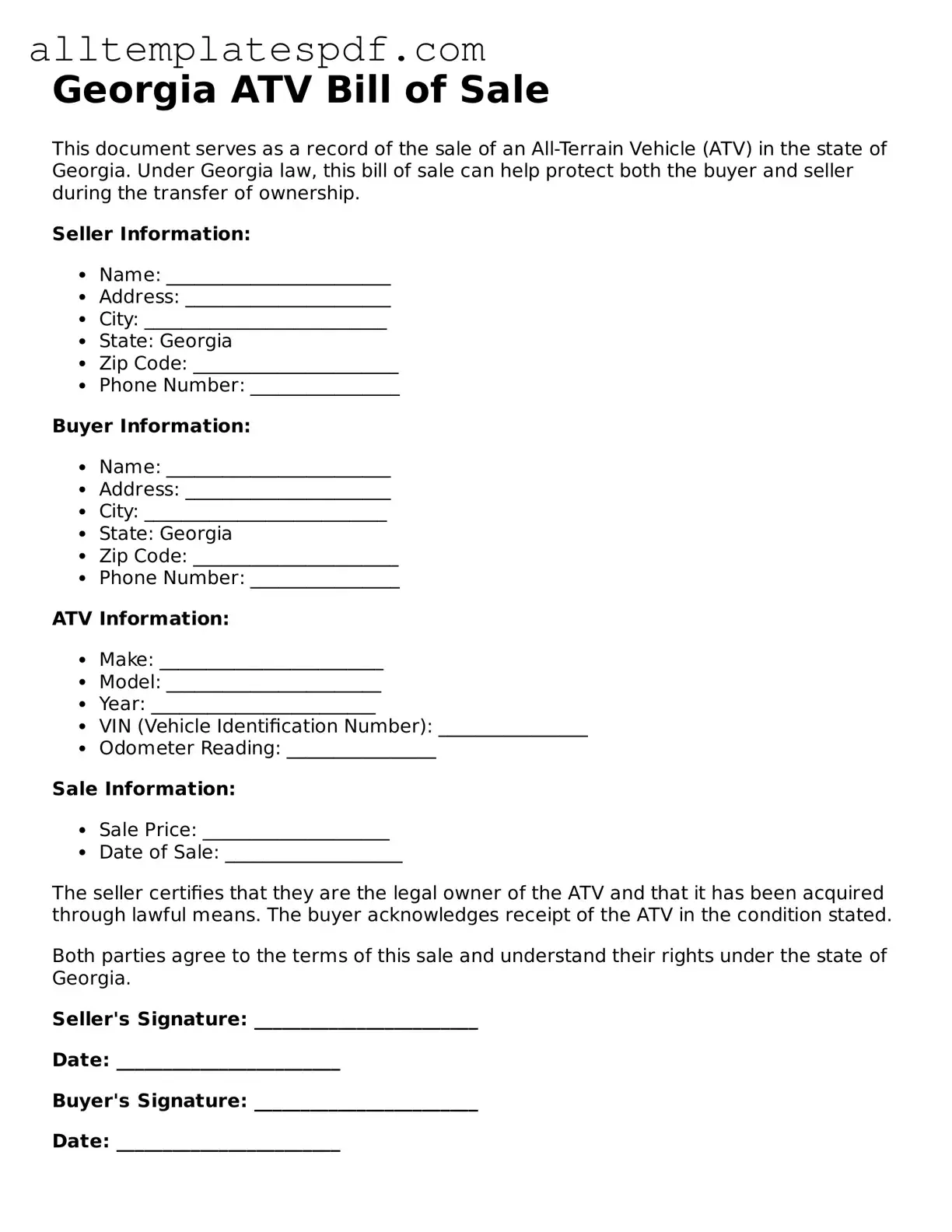Blank ATV Bill of Sale Template for the State of Georgia
The Georgia ATV Bill of Sale form is a legal document that records the transfer of ownership of an all-terrain vehicle (ATV) between a seller and a buyer. This form provides essential details such as the vehicle's identification number, make, model, and the sale price, ensuring a clear record of the transaction. If you're ready to complete your ATV sale, fill out the form by clicking the button below.
Open Editor

Blank ATV Bill of Sale Template for the State of Georgia
Open Editor
Fast and easy form completion
Complete ATV Bill of Sale digitally — fast and easy.
Open Editor
or
↓ ATV Bill of Sale PDF Form
